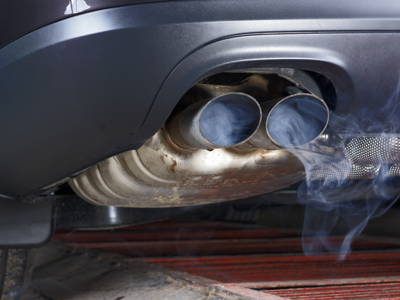
The Wirecard scandal
The legal ramifications of the Wirecard scandal continue to proliferate – Now shareholders are demanding justice from Wirecard’s auditor EY. Paul Dowling and Maja Berger explain.
Posted on 13 November 2024
The Wirecard scandal presents a shocking tapestry of allegations of corrupt business practices and fraudulent financial reporting, which rocked the financial world and led to the downfall of Germany's fintech darling, Wirecard. The scandal is a narrative of alleged economic corruption on an unprecedented scale, marking one of the most significant criminal cases in Germany's economic history, alongside the Dieselgate scandal.
As of October 2024, the main criminal trial against Markus Braun (former CEO of Wirecard) and two other defendants continues before the Munich Regional Court and Braun remains in custody due to concerns of flight risk and obstruction of justice.
Timeline of deception
Wirecard had been under scrutiny since 2015, when the Financial Times started publishing its House of Wirecard series, spotlighting inconsistencies in Wirecard’s accounts. The situation escalated dramatically in 2020 when Wirecard declared a staggering 1.9 billion Euros were missing from its balance sheet, just days after promising a KPMG report would clear up allegations of accounting inaccuracies. This revelation led to the arrest of CEO Markus Braun and triggered investigations by the public prosecutor’s office and BaFin, Germany’s financial regulatory body. Jan Marsalek, the chief operating officer of Wirecard, fled to Belarus in June 2020, just days before Munich prosecutors were set to issue an arrest warrant for him.
As with many white-collar crime cases, whistleblowers played a critical role in uncovering the extent of Wirecard’s alleged fraudulent practices. Concerns raised by insiders at Wirecard’s Singapore office about dubious third-party money transfers – known as "round-tripping" – prompted an internal investigation in March 2018. However, by later that year, the Financial Times reported that senior executives had obstructed the investigation, forcing whistleblowers out of the company.
Who can be held responsible?
Allegations of commercial fraud and balance sheet manipulation, a whistleblower, and a fugitive board member – the Wirecard saga seemingly has all the hallmarks of a classic tale of commercial fraud. Yet, beyond the sensational headlines, the real-life impact on investors is profound. Wirecard’s collapse erased over 20 billion Euros in investments, devastating many small investors who had trusted in the company's promise, bolstered by the German government’s endorsement. Now they are left facing vast amounts of debt.
In a bid to seek justice and compensation, the Deutsche Schutzvereinigung für Wertpapierbesitz e.V. (DSW), Germany’s leading association for private investors, set up a foundation in the Netherlands which has filed a lawsuit on behalf of investors on 22 December 2023. The funded class action includes 13,000 individual and institutional investors claiming more than 700 million Euros in damages from Wirecard’s auditor EY. This is one of several lawsuits EY is facing in the matter. With Wirecard insolvent since June 2020, investors have turned their attention to EY, accusing the auditor of falsely certifying the financial statements of recent years as accurate and consistently failing to recognize (or deliberately ignoring) the numerous warning signs that pointed to widespread fraudulent activity at Wirecard. Shareholders argue that had they been aware of the financial irregularities, they would never have invested in Wirecard.
Lessons learned and the road ahead
Issues of conflicts of interest and lack of independence within the professional services sector have been subject of much discussion and debate.
Leigh Day’s International Corruption and Whistleblowing team has represented numerous whistleblowers, including from multinational accountancy and consultancy firms, who have suffered harm after raising concerns about malpractice and potential illegality within their business.
Notably, Leigh Day acted for a whistleblower who alleged that EY had covered up adverse findings of a sustainability audit into the Dubai Gold trade. In April 2020, the court ruled in favour of Amjad Rihan, awarding him substantial compensation.
Beyond the professional services sector, the firm is currently representing retired Royal Signals Officer Ian Foxley, who alleges that he faced severe retaliation after raising concerns about payments made to high-ranking Saudi officials in relation to a major MOD telecommunications project with the Saudia Arabian National Guard.
The Wirecard scandal serves as a stark reminder of the critical need for transparency and accountability in corporate governance. As the legal battles unfold, they highlight the importance of vigilant oversight and the pivotal role of whistleblowers in safeguarding economic integrity.

Car manufacturers will face trials over Dieselgate emissions scandal next year
Trials of Dieselgate claims against four major car manufacturers will take place next year after the High Court gave dates to hear vehicle owners’ allegations of the use of in-car technology to cheat emissions tests.



